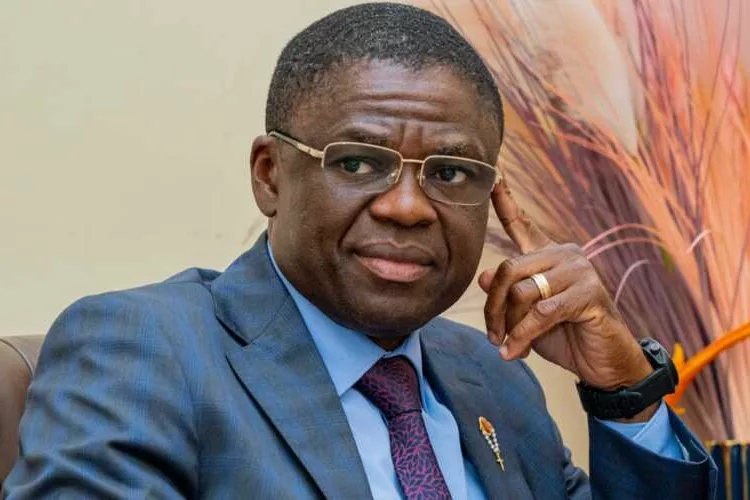The director-general and CEO of the National Institute for Sports (NIS), Philip Shaibu, has unveiled an ambitious vision to reposition the institute as the ‘engine room for producing champions.’
The former deputy governor of Edo State and a long-time advocate for sports development, outlined a sweeping transformation agenda aimed at turning the NIS into a world-class centre for athletic excellence.
Shaibu, who spoke on M4STV, emphasized the necessity for the NIS to evolve and assume a leadership role in shaping Nigeria’s sporting future.
“The National Institute of Sports should not just exist; it should lead. We must treat sports as a serious
business. The NIS must be the place where champions are made, not just for Nigeria, but for the world,” he asserted.
Under his leadership, the institute will focus on discovering and training talented athletes, enhancing coaching standards, and fostering strategic partnerships with the private sector.
Shaibu’s blueprint includes upgrading the institute’s facilities to meet international standards, transforming it into a modern and appealing training ground for athletes and professionals alike.
He also plans significant investments in human capital by training more coaches, sports scientists, and administrators, while establishing strong relationships with private companies for funding and innovation.
Acknowledging the challenges facing Nigerian sports, such as poor infrastructure, inadequate funding, and weak management systems, Shaibu described the NIS he inherited as ‘underground,’ a 50-year-old institution in urgent need of renewal.
He highlighted a worrying manpower imbalance, with more administrative staff than professionals, revealing that only one staff member currently possesses the necessary qualifications for their role.
“The manpower gap is vast,” he said, noting that the current curriculum is outdated, referring to it as a ‘Mungo Park curriculum in a modern era.’
To tackle these issues, Shaibu is committed to establishing a robust digital foundation for the institute, enabling it to compete globally and train coaches capable of preparing athletes for podium finishes.
He lamented that many Nigerian athletes abroad now return home to compete for the country due to the local talent pool’s lack of exposure to quality coaching and modern facilities.
While the 2026 budget is one source of funding, Shaibu stressed that the institute cannot rely solely on government allocations, positioning the NIS as a crucial part of the sports industry, responsible for training not only coaches and athletes but also sports medicine professionals, physiotherapists, and paramedics.
The NIS currently offers a National Diploma in Paramedic Technology, focusing on emergency medical care, trauma management, and sports-related health services.
Shaibu also underscored the institute’s historical significance, recalling that in the 1980s, the Green Eagles (now Super Eagles) used to perfect their training at the NIS. He affirmed that one of the core mandates of the institute is to train elite athletes and restore its legacy as the cradle of Nigerian sports excellence.
“We are rebranding the entire system so that the private sector can identify with the NIS and partner with us,” Shaibu concluded.





